Acer FA200 NVMe SSD Review
Author: Dennis GarciaBenchmarks
MSI MAG B850 Edge Ti WiFI – B850 Chipset
AMD Ryzen 9 9950X (4.3Ghz) Sixteen Core 16 x 1MB L2 Cache 2 x 32MB L3 Cache
Noctua NH-D12L
1x nVidia RTX 5080
2x Patriot Viper Venom PC5-57600 DDR5 32GB (40-40-40-77)
Patriot P200 512GB SSD
Thermaltake Toughpower PF3 1050 Watt PSU
Windows 11 Pro 64bit
Storage Tested
ACER FA200 4TB Gen4 NVMe SSD
Patriot Viper VP4300 4TB NVMe SSD
Lexar Professional NM800 2TB NVMe SSD
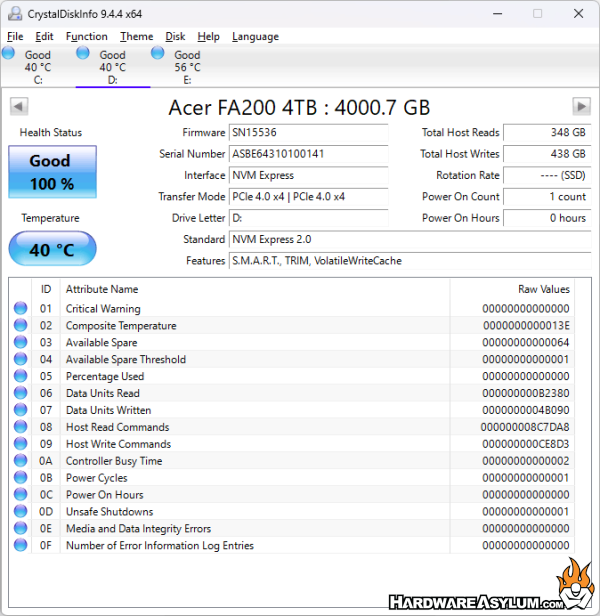
For the benchmarks I choose to give a mix of synthetic and real world tests that are both repeatable and should provide a good basis for comparison. The problem is knowing exactly what people are looking for when choosing a storage solution and if benchmarks really matter. While some sites might go into the timing ticks of the individual NAND chips or latency of the controller I find that to be a little too technical. (says the reviewer who benchmarks CPUs down to the thousands of a second)
Instead, I find that my tests should allow readers to easily verify my results and decide for themselves if this product meets their needs.
ATTO Disk Benchmark is a freeware disk benchmarking utility that can test a variety of storage solutions from single hard drives to multi level RAID arrays and solid state disks. The tests can be broken down to transfer sizes between 512B to 64MB with lengths between 64KB and 32GB. Testing results are shown on a transfer chart with reads and writes clearly marked.
For our benchmark the 64MB transfer is being recorded even though the 128k range is often quoted as having the fastest transfer speed (range) of any drive.
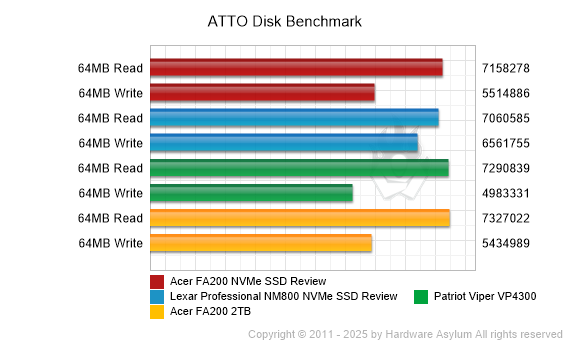
Crystal Disk Mark is a widely available disk benchmarking program that can test a variety of different scenarios from Sequential to Random with Multiple and Single queues.
For our tests the Sequential and Random test with multiple queues and threads will be recorded.
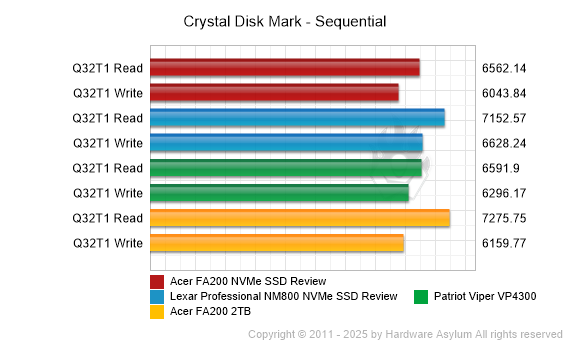
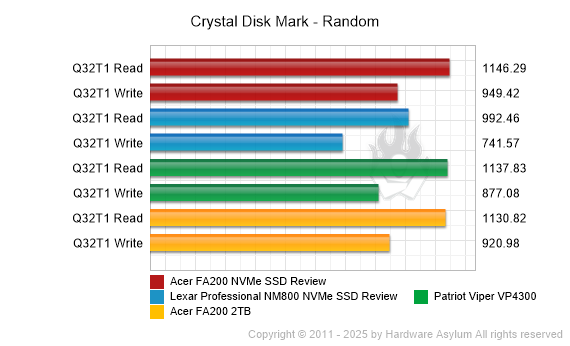
PCMark 10 is an overall system benchmark to measure and compare PC performance using real-world tasks and applications. Similar to 3DMark this new version tests the entire system as a whole using applications that reflect typical PC use in the home and at the office. This approach ensures that PCMark measures the things that matter, highlighting performance differences that will be apparent to end users and consumers.
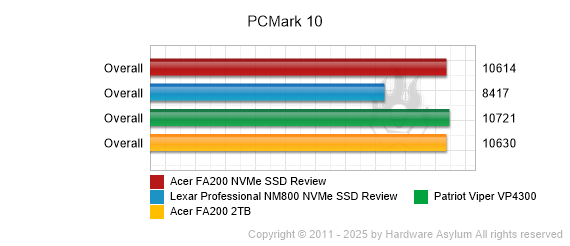
The latest generation of the premier PC performance metric featuring new Office Applications, General Productivity, Photo Editing, and Advanced Content Creation. The Office Application scenario features updated workloads for popular office suite-style applications. The General Productivity scenario features tasks like web browsing, file compression, and application installation. The new Photo Editing scenarios measure the responsiveness of creative photo management and manipulation usage models. The Advanced Content Creation scenario heavily uses photo and video editing applications, including multitasking.
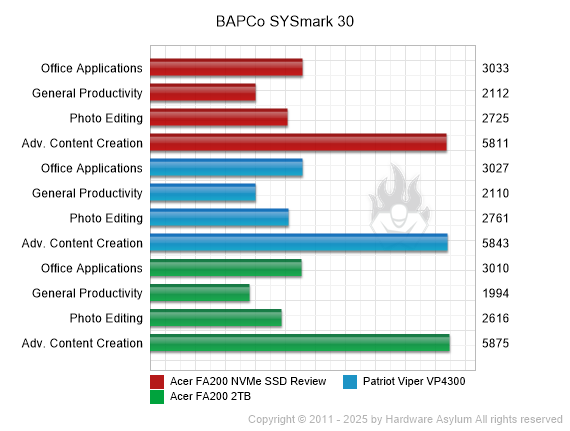
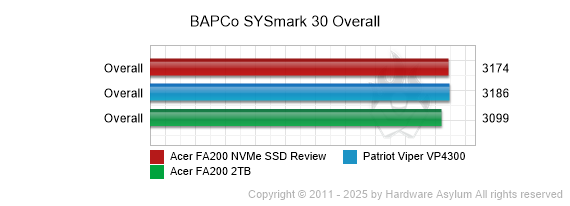
These benchmark results are very interesting for a number of reasons. First of all, both the ACER FA200 and Patriot VP4300 are quite similar and tested on the AMD B850 platform while the older Lexar NM800 Professional drive was tested on the Intel Z690 platform and used as a reference. I like to mix in older results when needed and normally they work out well. With our synthetic benchmarks the performance the two 4TB drives offered similar performance numbers that were shy of the advertised values however, the 2TB version of the FA200 matched completely.
I mention this because when we transition to Real-World results the platforms tend to favor the larger drives, if by only a small margin. Both are still plenty fast but, splitting hairs over burst transfer speeds is poor armchair logic

